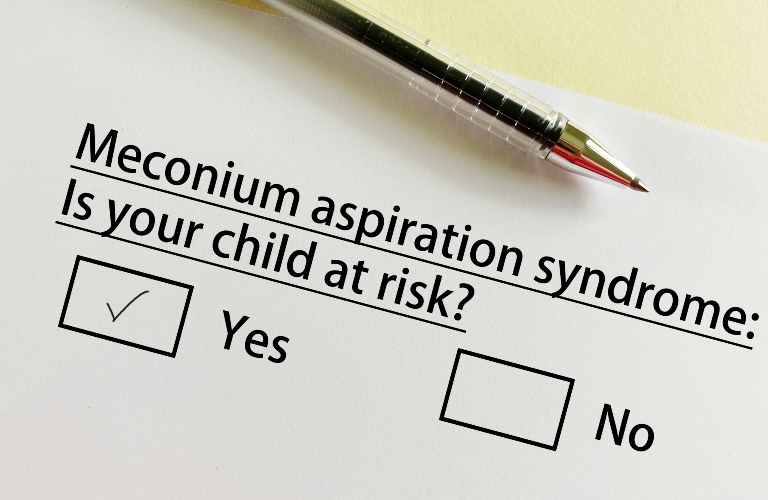For many parents, the delivery room is filled with anticipation and hope. But when complications arise—such as meconium aspiration—those first moments can turn critical. While this condition can often be managed with prompt medical care, failure to act quickly and appropriately can lead to long-term harm. In severe cases, it may even point to medical negligence.
Here’s what parents need to know about meconium aspiration, how it’s treated, and when it may be time to speak with a birth injury attorney.
What Is Meconium Aspiration?
Meconium is a newborn’s first stool, made up of materials ingested while in the womb, including amniotic fluid and fetal cells. Normally, babies pass meconium after birth. But during a difficult or stressful labor, a baby may release meconium into the amniotic fluid before delivery.
If the baby then inhales this mixture of meconium and amniotic fluid into their lungs—either before, during, or just after birth—it can lead to Meconium Aspiration Syndrome (MAS). This condition affects the baby’s ability to breathe and may cause serious complications if not addressed immediately.
How Is Meconium Aspiration Treated?
Treatment depends on how severe the aspiration is and how the baby responds after birth.
Right after birth:
- Healthy (vigorous) babies with strong cries and good tone may only need observation and some oxygen.
- Babies in distress were once routinely suctioned, but new guidelines now recommend focusing on gentle respiratory support rather than invasive suctioning unless clearly needed.
Continued care may include:
- Oxygen therapy to support breathing
- Mechanical ventilation in more serious cases
- Surfactant therapy to help the lungs function better
- Antibiotics if there’s concern about infection
- ECMO (extracorporeal membrane oxygenation) in very severe cases when other treatments don’t work
When Is Meconium Aspiration Dangerous?
Meconium in the lungs can cause:
- Blocked airways
- Lung inflammation
- Infection
- Persistent pulmonary hypertension of the newborn (PPHN)
If not treated promptly, these complications can prevent oxygen from reaching the brain and organs. The result could be brain damage, developmental delays, or—in the most tragic cases—death.
When Does It Become Medical Malpractice?
Not every case of MAS is preventable. But when warning signs are missed or treatment is delayed, medical negligence may be involved.
Potential red flags include:
- Failure to monitor signs of fetal distress during labor
- Delay in delivery when meconium-stained fluid is detected
- Inadequate care after birth, missing signs of respiratory trouble
- Not providing timely treatments like oxygen or NICU care
- Delayed escalation to advanced interventions like ECMO
To prove malpractice, a case generally must show:

- The provider had a duty of care
- They failed to meet the standard of care
- That failure caused harm
- The baby suffered injuries or damages as a result
Your Legal Options If MAS Was Mishandled
If your child experienced severe complications or lasting injuries due to meconium aspiration, and you believe more could have been done, you may have legal recourse.
A successful claim may help recover damages for:
- Medical expenses, including future care needs
- Pain and suffering
- Loss of future earning capacity
- Emotional trauma
- Wrongful death, in the most serious outcomes
These cases rely heavily on medical records and expert reviews to determine whether appropriate steps were taken during labor, delivery, and after birth.

Your Pennsylvania Birth Injury Attorney
Meconium aspiration is a medical emergency that can often be managed with proper care. But when warning signs are ignored or treatment is delayed, the consequences can be life-altering. If your baby suffered complications due to MAS, it’s worth speaking with a team that understands both the medical and legal sides of birth injury cases.
At Latona Law, we’re here to help families find answers—and hold providers accountable when negligence changes lives. Reach out for a free consultation to learn more about your rights and options.